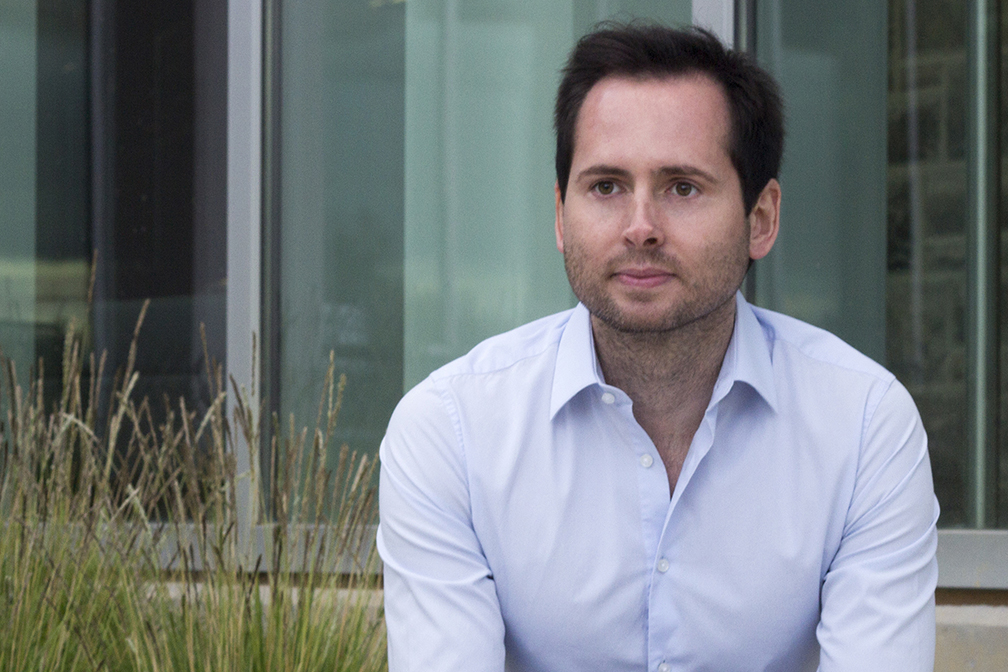New Interdisciplinary Major Trains Students to Become All-Round Leaders in the 21th Century
April 21, 2018

Anticipation, adrenaline, confidence, hope, and a touch of anxiety fill the waiting room. A dozen well-suited, well-educated college graduates wait for an interview at a major Wall Street firm. But one candidate stands out among the intense competition, showcasing high-level critical thinking that arrives at solutions that are not only economically sound, but also socially, ethically, and politically informed.
A new interdisciplinary major at Virginia Tech prepares undergraduates for this post-graduation scenario. The philosophy, politics, and economics (PPE) major is a collaborative degree between the Department of Philosophy and the Department of Political Science in the College of Liberal Arts and Human Sciences and the Department of Economics in the College of Science.
“The PPE major attracts driven students in the humanities and social sciences who have a genuine interest in working across disciplines and a desire to engage with cutting-edge research that is socially relevant,” said Michael Moehler, an associate professor of philosophy and director of Virginia Tech’s Program in Philosophy, Politics, and Economics.
Research is a core feature of both the new PPE major and the PPE minor, which has been offered since 2015. Each student majoring in PPE must complete a research project based on their interests garnered from two years of foundational studies.
“We ask our first-year students to take basic courses in philosophy, political science, and economics, such as introductory courses in ethics, political theory, logic, microeconomics, and macroeconomics,” Moehler said.
During their sophomore year, PPE majors study thought leaders in philosophy, political science, and economics, in the required PPE Gateway Course, which integrates the quantitative techniques, conceptual tools, and core principles of the three disciplines.
When students reach their junior and senior years, they have the freedom to structure their course load based on their research interests. These may include classes in philosophy, political science, economics, or any combination of the three, or a focus on a double major or minor in another area.
Students’ interdisciplinary studies culminate in a research project that is part of the PPE Capstone Course that students take during their senior year. Combining three areas of study provides students with a wide range of potential topics for their interdisciplinary research papers.
“I have focused on the dynamics of the sharing economy made famous by companies like Airbnb and Uber,” said Nicholas Work, a senior from Ashburn, Virginia, with a minor in PPE. “My capstone paper centered on the analysis of the legal issues surrounding the sharing economy’s state and municipal regulations, as well as labor law.”
Moehler said that Work, who is majoring in management in the Pamplin College of Business and political science in the College of Liberal Arts and Human Sciences, embodies the spirit of interdisciplinary studies prevalent in PPE, which shapes students into critical thinkers who can provide innovative solutions that are socially and culturally reflective.
“Our students read thinkers such as Aristotle, Plato, Thomas Hobbes, David Hume, Adam Smith, and Immanuel Kant, who all have identified something essential about the human condition that transcends time,” Moehler said. “The philosophers’ ideas were relevant for their own generations, and they are relevant today.”
In their courses and research projects, PPE students learn about the fundamentals of human cooperation and society and explore solutions for tomorrow’s world. Students in PPE have written about topics such as fracking, prison labor, and international trade through their capstones.
The PPE major fosters students’ interests and passions, while helping them to develop skills that make them employable.
“The PPE major goes beyond just providing content knowledge,” Moehler said. Because the program is selective, faculty get to know their students well enough to strengthen their skillsets and identify areas of improvement before they graduate and become job seekers.
PPE as a program of study has a long tradition in Europe and has become increasingly popular in the United States over the past ten years. Moehler said programs at institutions such as Oxford University, where the degree model originated, have shown that a significant market for PPE exists. Upon graduation, PPE students often go into strategic consulting, finance, public policy, think tanks, public administration, government, law, journalism, business administration, international affairs, and nonprofit leadership.
“We encourage our students to do what they love to do,” Moehler said, “and we work on ensuring that they develop the skills necessary to succeed professionally.”
Written by Leslie King





